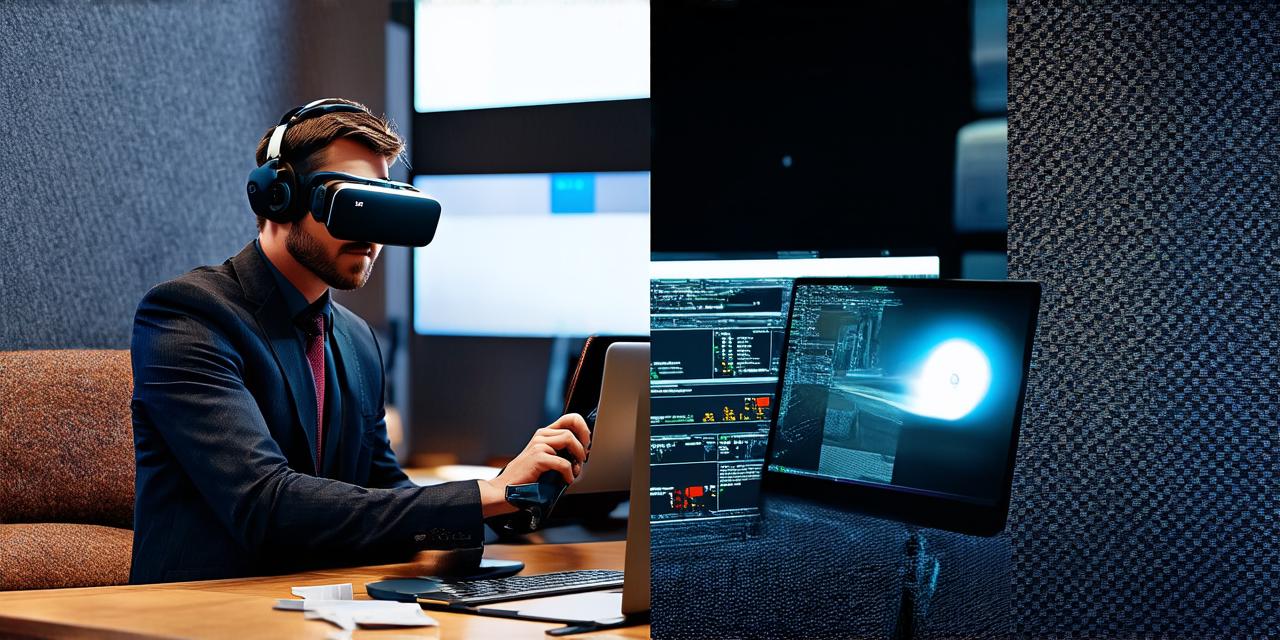
How to land a job in the virtual reality industry
Virtual Reality (VR) Industry
Virtual reality (VR) is a rapidly growing industry that presents an exciting opportunity for professionals seeking to work on cutting-edge technology. The VR market is expected to reach $209 billion by 2027, providing ample room for growth and innovation.
1. Acquire the Right Skills
Virtual reality jobs require a range of technical and soft skills. Some of the essential technical skills include:
- Programming languages like C++, Java, Python, or C
- 3D modeling software such as Unity, Unreal Engine, or Blender
- Experience with VR development tools like Oculus SDK or OpenVR SDK
- Knowledge of game engines and their capabilities in VR

In addition to technical skills, you should also possess soft skills such as:
- Communication skills to work effectively with cross-functional teams
- Creativity and problem-solving skills to develop innovative solutions
- Adaptability and willingness to learn new technologies quickly
2. Build a Strong Portfolio
A strong portfolio is essential when applying for a job in the VR industry. Your portfolio should showcase your skills, experience, and creativity. Some of the elements that you can include in your portfolio are:
- Projects that demonstrate your proficiency with different VR tools and technologies
- Demos or prototypes of your work
- Descriptions of the challenges you faced while developing your projects and how you overcame them
- Recommendations from previous employers or colleagues
3. Networking
Networking is a crucial aspect of finding a job in the VR industry. Attend virtual reality conferences, meetups, and other events to connect with professionals in the industry. You can also join online communities like Reddit’s r/VRDev or LinkedIn groups dedicated to virtual reality development.
4. Gain Experience through Internships or Freelance Work
Gaining experience through internships or freelance work is an excellent way to break into the VR industry. You can find internship opportunities on websites like Indeed or Glassdoor, or by reaching out to companies directly. Freelance work allows you to gain hands-on experience and build your portfolio while also providing you with the flexibility to work on projects that interest you.
5. Stay Up-to-Date with Industry Trends
The VR industry is constantly evolving, so it’s essential to stay up-to-date with the latest trends and technologies. Read industry publications like Wired, TechCrunch, or UploadVR to learn about new developments in the field. Attend conferences and webinars to gain insights into emerging trends and network with other professionals. By staying informed, you can position yourself as a thought leader in the industry and increase your chances of landing a job.
6. Develop Your Soft Skills
While technical skills are essential for virtual reality jobs, soft skills like communication, collaboration, and problem-solving are also critical. To develop your soft skills, consider taking courses or workshops on topics like leadership, teamwork, and conflict resolution. You can also volunteer for projects or participate in group activities that require you to work with others.
7. Consider Remote Work Opportunities
Remote work is becoming increasingly popular, and the VR industry is no exception. Many companies offer remote work opportunities, allowing you to work from anywhere in the world. This flexibility can be especially appealing for virtual reality developers who need to collaborate with team members in different time zones.
8. Be Persistent and Patient
Finding a job in the VR industry can be challenging, and it may take time to land your dream job. However, by staying persistent and patient, you can increase your chances of success. Keep honing your skills, building your portfolio, and networking with professionals in the industry. With hard work and determination, you can achieve your goals and contribute to the growth and innovation of the VR industry.
Conclusion
The VR industry presents an exciting opportunity for professionals seeking to work on cutting-edge technology. By acquiring the right skills, building a strong portfolio, networking, gaining experience through internships or freelance work, staying up-to-date with industry trends, developing your soft skills, considering remote work opportunities, and being persistent and patient, you can increase your chances of landing a job in this competitive industry. With hard work and dedication, you can achieve your goals and contribute to the growth and innovation of the VR industry.


